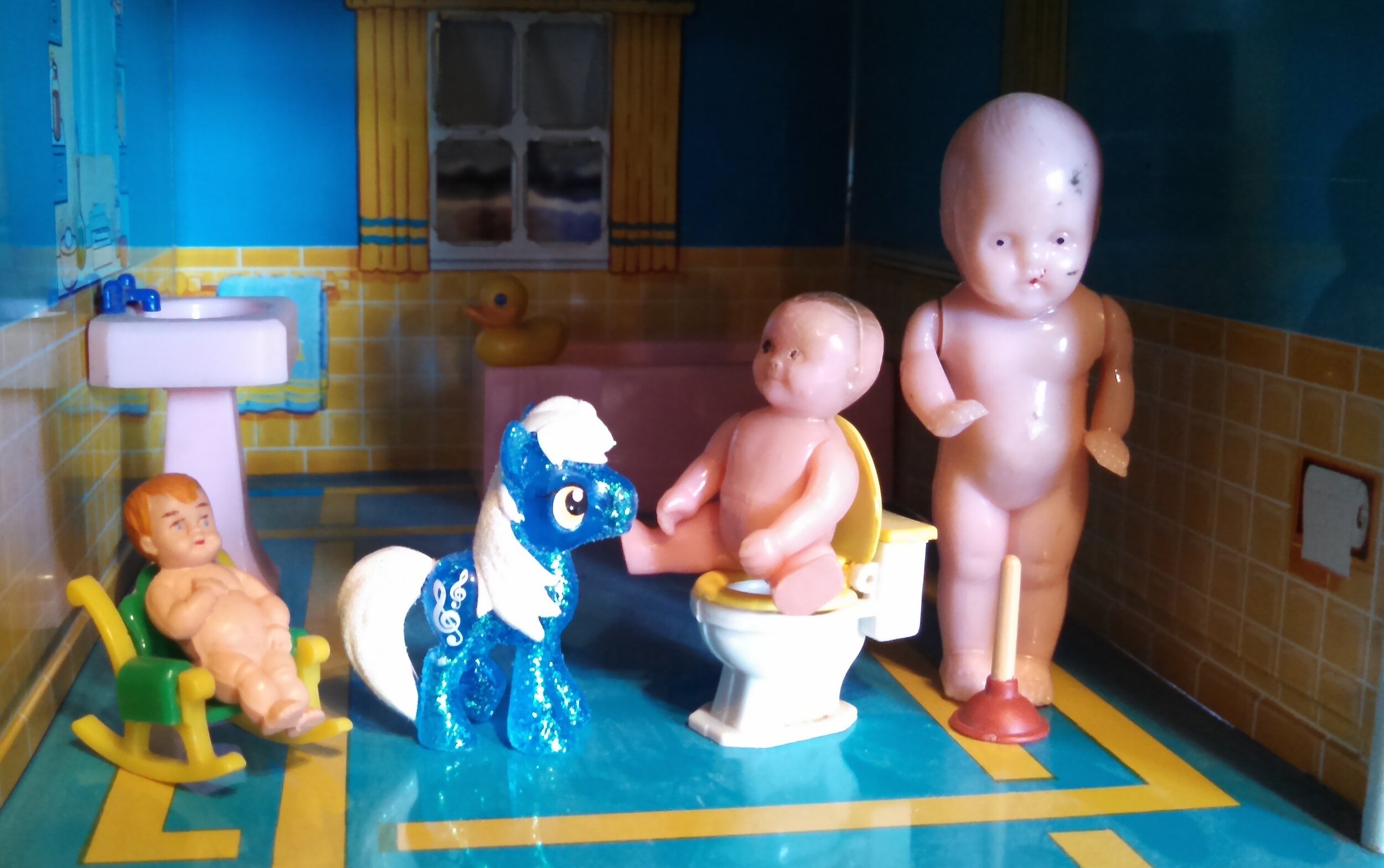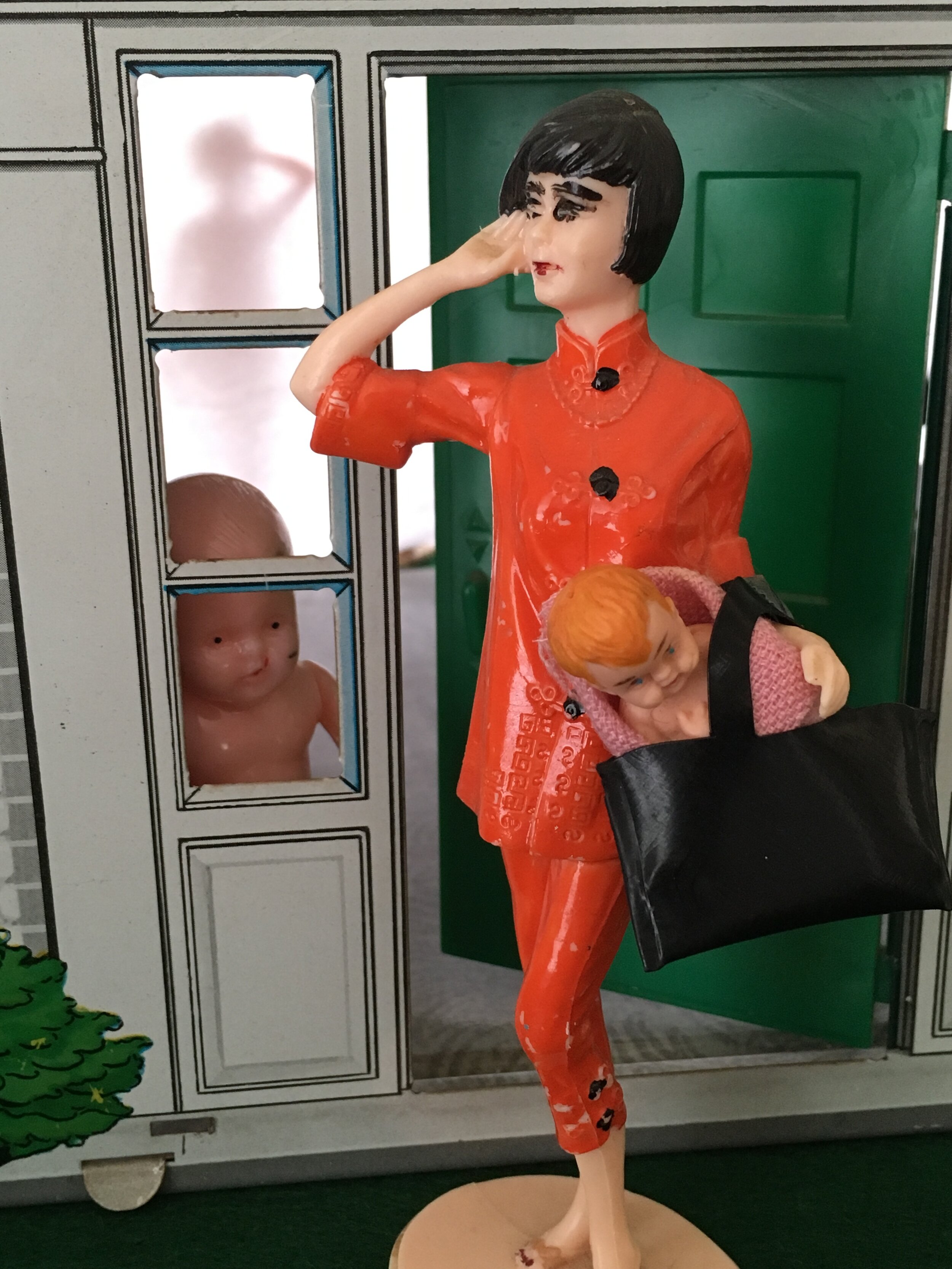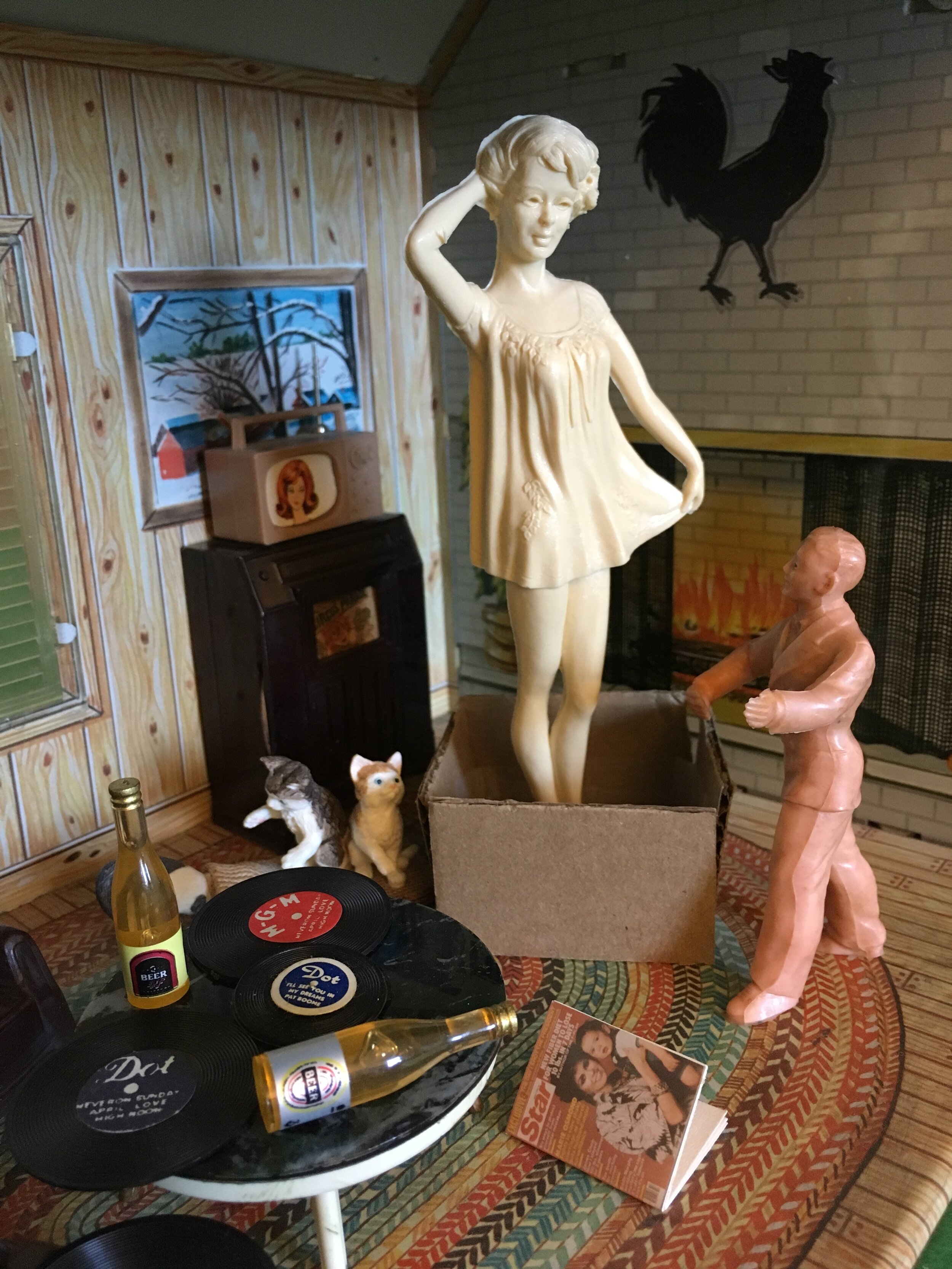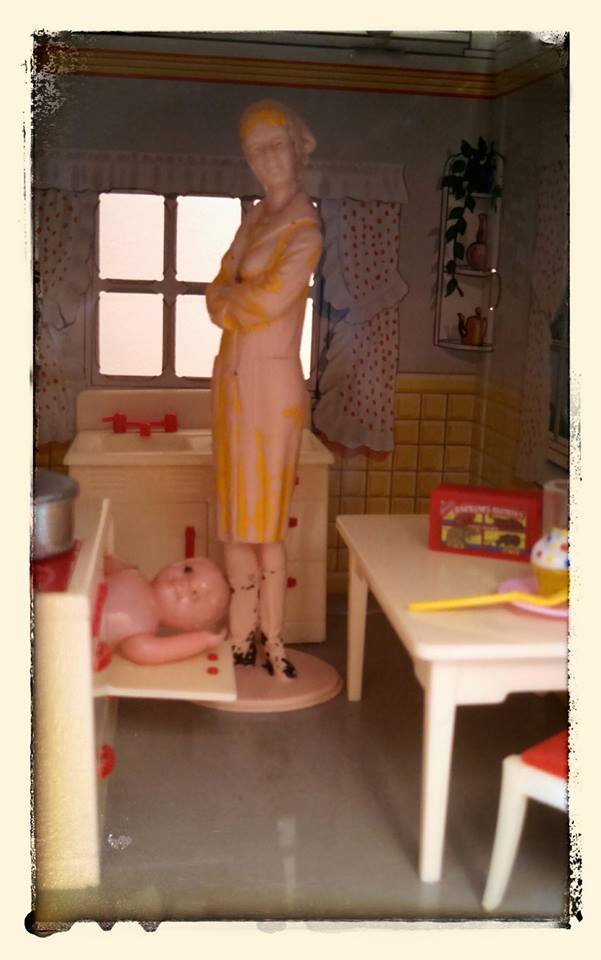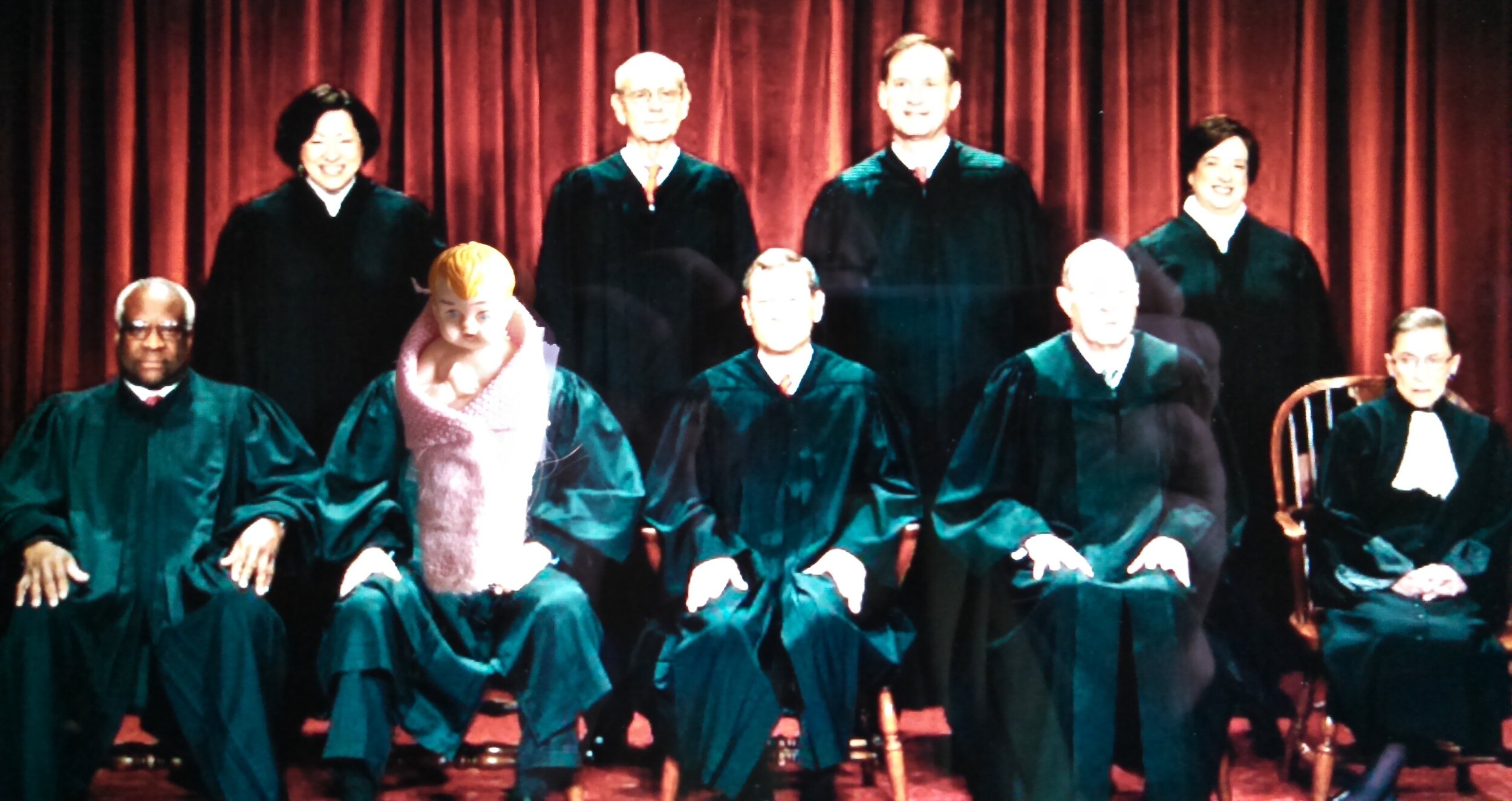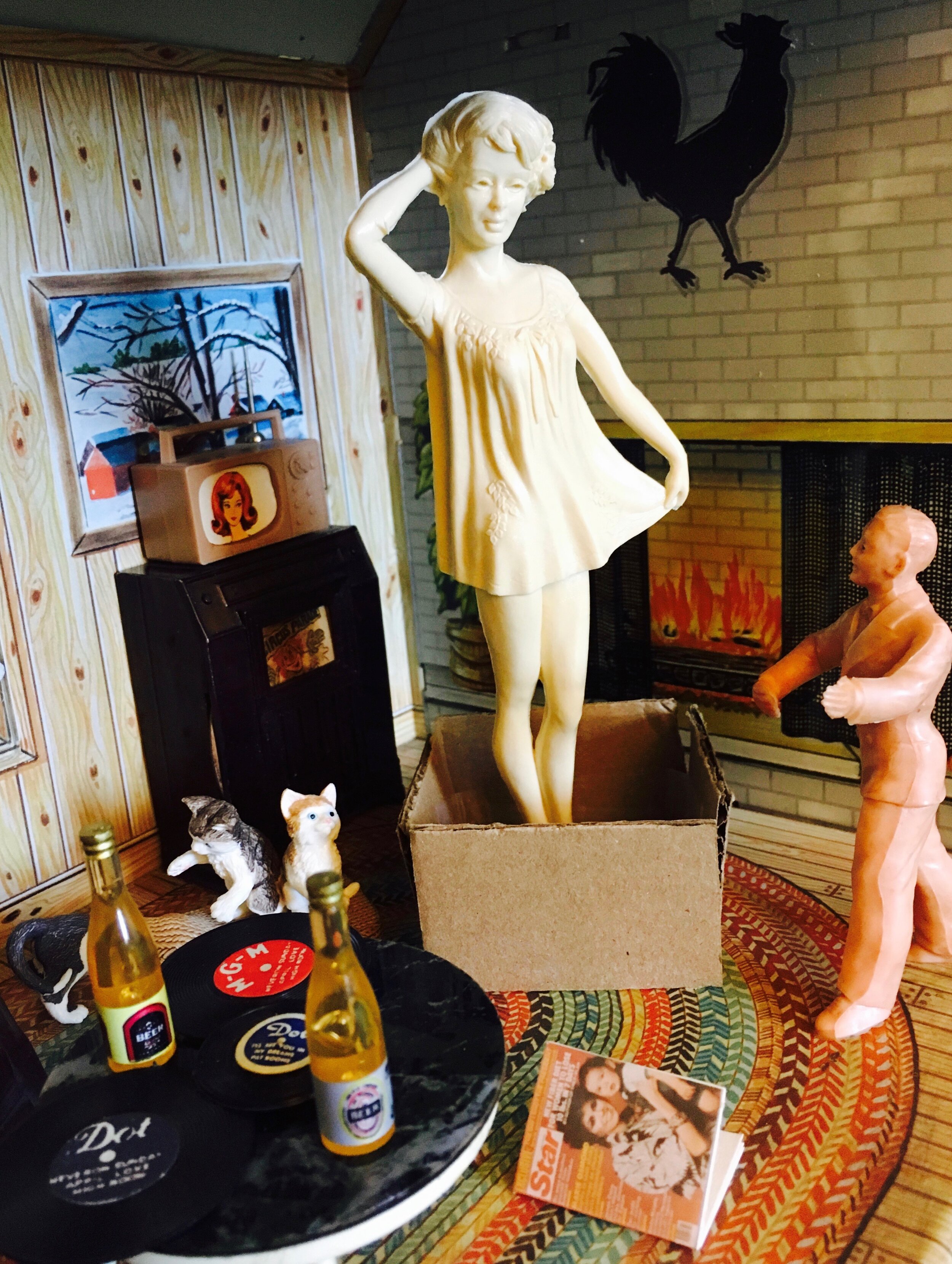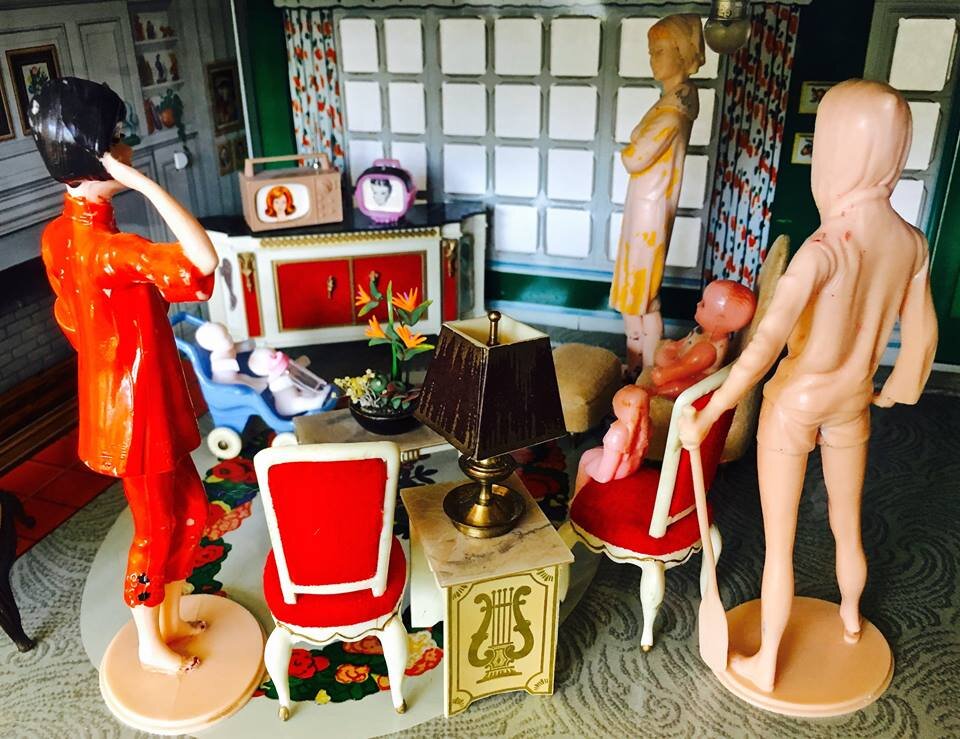The Dollhouse
Children play to control the world. Tiny themselves, they create even smaller worlds populated by all sorts of figures, friends to have tea with, monsters to defeat, new microcosms to explore what is inside them via the outside world.
I began The Dollhouse to explore my personal history as well as to interrogate the ideas of adoption, identity, feminism, and home. Creating worlds through play in The Dollhouse allows me to create utopias where women rule the 1:12-scale world. Dolls and dollhouses represent a hyper-sexualized way of thinking about women. I wanted to explore this Madonna/Whore tension. I wanted to populate my 1960s-era Louis Marx “tin mansion” with images of women from the era of my mother’s confinement, to imagine myself into her life, and imagine her into mine. By disrupting the patriarchal fixtures of the time, I explore what has changed, and what remains.
Play has helped me unlock new ways of expressing the paradox of my identity as an adoptee, while exploring memory, trauma, erasure, and the myths and family lore that so heavily factor into adoptees’ origin stories.

